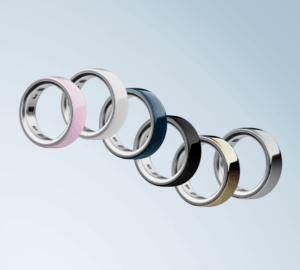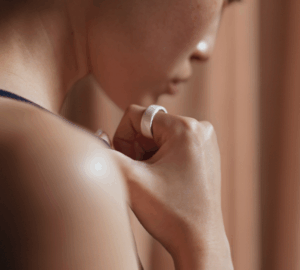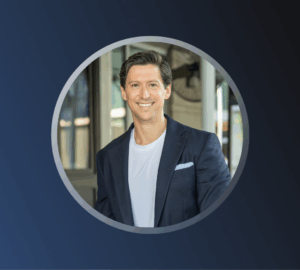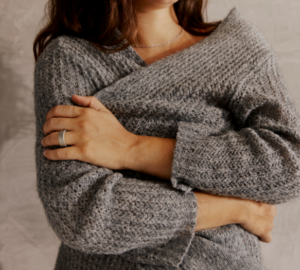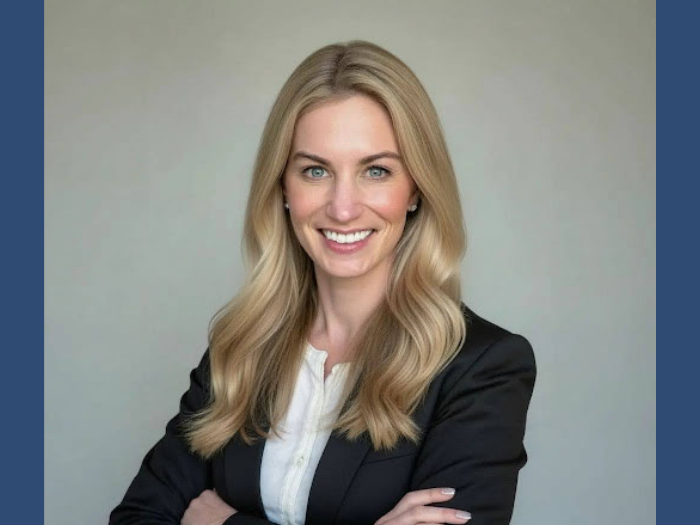We’re thrilled to introduce Annemarie (Annie) Tilton, MD, Oura’s Director of Clinical Outcomes Research—a physician and scientist helping bridge the gap between everyday physiology and real-world health outcomes.
Dr. Tilton is Oura’s Director of Clinical Outcomes Research, where she leads efforts to demonstrate how continuous, real-world data from Oura Ring can improve health and healthcare delivery. Her work focuses on generating clinical evidence that connects daily physiology to measurable outcomes, from reduced healthcare utilization to improved long-term wellbeing.
Before joining Oura, Dr. Tilton led medical strategy and clinical programs across multiple therapeutic areas, bridging biomedical research with emerging technologies that enable more personalized, data-driven care. Her experience spans drug development, medical devices, and digital health innovation.
She contributes to advancing evidence-based approaches in emerging health technologies and is a frequent speaker on the evolving intersection of medicine, research, and technology.
Dr. Tilton earned her bachelor’s degree from the University of Notre Dame and her medical degree from the University of Cincinnati College of Medicine before pursuing training in orthopedic surgery at Northwestern University. She lives in Park City, Utah.
What drew you to work with Oura?
I was drawn to Oura because it represents the future of how we’ll practice medicine. Healthcare is shifting out of hospitals and clinics and into people’s everyday lives. We’re moving from a model of reactive, episodic “sick care” to one of continuous, preventive health—where early insights and small daily choices can have a cumulative impact.
Oura is uniquely positioned to help lead that transition. It’s built on years of scientific rigor and credibility with millions of members, yet it remains deeply personal and accessible.
As a physician and clinical researcher, I see enormous potential in exploring how Oura can help individuals understand their physiology, while also changing how we think about healthcare utilization and clinical outcomes at scale.
What are you most excited to work on at Oura?
I’m most excited to build the clinical outcomes research function from the ground up to help shape how Oura contributes to the future of healthcare. What fascinates me is that Oura gives us a lens into daily physiology at a scale and frequency traditional research could never achieve.
By connecting everyday patterns to measurable health outcomes, we can redefine what prevention looks like and build a foundation for digital health tools that belong in both wellness and clinical care.
What are the top one or two insights you’ve learned about your own health since using Oura?
One of the biggest insights I’ve gained from using Oura is how my energy levels and recovery are influenced by subtle physiological shifts.
I have POTS (postural orthostatic tachycardia syndrome), which makes my body particularly sensitive to changes in things like hydration, temperature, and sleep quality. Before Oura, I didn’t have a reliable way to measure those fluctuations, and each day felt like guesswork. The Oura App has surfaced patterns in my behavior and health that have helped me make proactive adjustments to stay more balanced.
| Member Spotlight: Read how Oura Member Emma N. from Chicago uses her Oura data to manage her POTS. |
What’s remarkable is that Oura Ring makes this kind of understanding accessible to everyone. Whether someone is managing a condition, optimizing performance, or simply learning how their body responds to daily habits, Oura translates physiology into insights that are highly personalized and actionable. It’s changed how I think about what “listening to your body” really means.
READ MORE: Using Oura to Listen to Your Body
What do you wish more people knew about their health, which Oura enables them to learn?
Many people underestimate how dynamic their physiology really is. The body is constantly sending signals through changes in sleep quality, temperature, and heart rate—but without the right tools to interpret the patterns, those signals are easy to miss. Oura makes this invisible physiology visible and helps people understand the ongoing process of adaptation that defines “health.”
What’s equally important is how Oura personalizes that understanding. No two people respond to stress, activity, or recovery in the same way. By highlighting individual patterns and trends, Oura helps each person learn what “well” looks like for them and notice subtle changes before they become issues.
READ MORE: What Makes Oura Ring Different?
What are one or two of the top ways you believe AI will impact healthcare technology in the coming years?
AI will transform healthcare by making sense of the enormous amount of real-world physiological data we can now measure. It will allow us to move beyond static snapshots of health toward continuous understanding—connecting patterns in sleep, recovery, and activity with long-term outcomes in ways that weren’t possible before. That shift will help clinicians and researchers identify risks earlier, guide more personalized interventions, and ultimately prevent disease rather than react to it.
AI will also make healthcare more scalable and precise. Automating the translation of complex signals into clear, actionable insights can bring preventive care and personalized guidance to millions of people simultaneously. AI will extend clinical judgment to help us see connections that improve health outcomes at both the individual and population level.
#1 Oura metric or score you look at in the morning?
Sleep Score. I am constantly working on my sleep hygiene, and the immediate feedback is powerful.
Must-do morning ritual?
Coffee, the Tonight Show monologue from the night before to get my headlines, and a dog walk—or a quick ski tour in the winter.
READ MORE: Should You Delay Morning Caffeine?
Go-to energy hack?
Fifteen push-ups or burpees. A short burst of movement resets my energy and focus when I need a quick boost.
Evening wind-down routine?
Gratitude journaling and leaving my phone in another room so I can fully unplug and prepare for a good night’s sleep.
Surprising side interest or hobby?
Skating. I grew up in Minnesota playing hockey, and to this day, I feel more comfortable on skates than on my own feet.
READ MORE: The Oura Q&A: Chris Curry, MD, PhD






